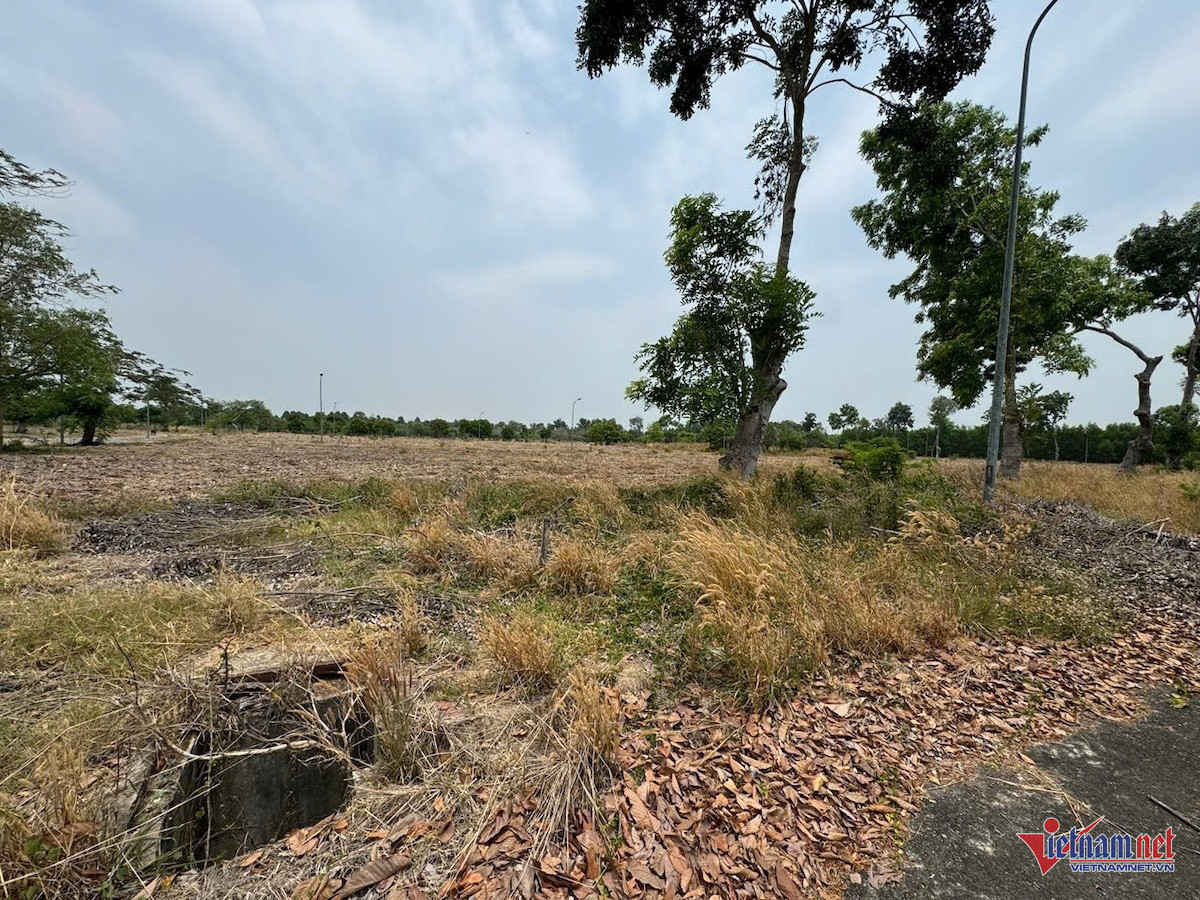Despite the lack of official confirmation about any merger of surrounding provinces with Ho Chi Minh City, many real estate agents have been exploiting the rumors to artificially inflate land prices and create speculative fever in adjacent areas.
Land prices surge amid merger speculation

Over the past month, the property market in areas bordering Ho Chi Minh City has become increasingly active following rumors that nearby provinces might be merged into the metropolis. In Nhon Trach District, Dong Nai Province - a locality often stirred by news of a bridge replacing the Cat Lai ferry - land prices are once again being hyped up by brokers.
Along Nguyen Thi Dinh Street in Thu Duc City, the road leads to the Cat Lai ferry terminal. After crossing the ferry, travelers arrive on Ly Thai To Street in Phu Huu Commune, Nhon Trach District.
A VietNamNet reporter observed that on both sides of the route entering Dong Nai Province, signs advertising land for sale and consignment lined the streets. Under the scorching sun, groups of agents gathered beneath umbrellas.
Posing as an investor from Ho Chi Minh City looking to “ride the wave” of the merger news, we visited a roadside café where several brokers were already chatting animatedly about the Dong Nai real estate market.
Ms. H., who introduced herself as a land specialist in Nhon Trach, said that over the past few weeks, many investors had flocked to the area, and land prices had risen daily. Unlike previous rumors about the Cat Lai bridge, she claimed this merger news was more “credible,” stirring up genuine market excitement.
Compared to the previous week, many land lots had reportedly increased in price by USD 7,900 to USD 11,850.

Pointing across the street to a subdivided land area, Ms. H. noted that all the lots with main-road frontage had been sold. Some owners were already trying to resell for a profit, while most investors were holding onto their lots in anticipation of further price hikes. She and several others were marketing over a dozen lots on a nearby side street.
"After Nhon Trach merges into Ho Chi Minh City, land here will skyrocket. If you find a good lot, you should put down a deposit now - by tomorrow, this price might be gone," she said while waving a subdivision map.
Mr. T., claiming to be an employee of real estate firm T.V., added that even without the merger rumors, Nhon Trach land had growth potential due to its proximity to Ho Chi Minh City, existing industrial zones, and favorable inter-regional transport links.
"Geographically, Nhon Trach land is still the cheapest among the areas bordering HCMC. Some lots are going for just USD 200 per square meter. Prices are expected to rise by 20–30% by the end of the year," he asserted.
Is the land fever real or just another sales tactic?

Arriving at Nguyen Van Cu Street in Phuoc An Commune, Nhon Trach, we encountered a group of agents marketing plots in the Phuoc An Resettlement Area, which was designated for residents relocated due to local projects.
According to these agents, land in this area is being advertised at between USD 39,500 and USD 47,400 per lot, depending on size. However, inventory was low, as a group of investors had recently bought in bulk. Compared to last month, prices had surged by USD 11,850 to USD 15,800 per lot.
To investigate actual transaction activity, we visited the D.S. Notary Office on Tran Van Tra Street in Phu Dong Commune. Although it was early in the afternoon work session, the number of clients notarizing land transactions was minimal.
A staff member shared that recent client visits were mostly for document certification, not real estate deals. Sales activity was present but far from booming.
At the K.N. Notary Office on Ton Duc Thang Street in Long Tan Commune, a representative remarked that the current buzz in Nhon Trach’s land market was primarily broker-driven. The number of notarized transactions had not spiked, and in some cases, land prices had dropped from their peak.

Vo Tan Hanh, Director of the Nhon Trach District Land Registration Office, said that since the Lunar New Year, the local property market had remained relatively stable, with no sudden transaction surges.
Regarding the rumored provincial mergers’ impact on the property market, a market research analyst noted a sharp increase in real estate searches during the week following the rumors. Among HCMC-adjacent areas, Nhon Trach experienced the highest rise in interest, with search volumes up 41%.
This surge reflects investor optimism and belief in the potential benefits of merging surrounding provinces into Ho Chi Minh City. In addition to increased interest, asking prices in these regions have been climbing and are nearing previous peaks - signs of a potential “heat-up,” though not without risk.
While short-term “surfing” opportunities exist, the risks are significant, especially for inexperienced investors. Real estate prices depend not only on merger speculation but also on housing demand, transportation infrastructure, and the local economy.
Anh Phuong